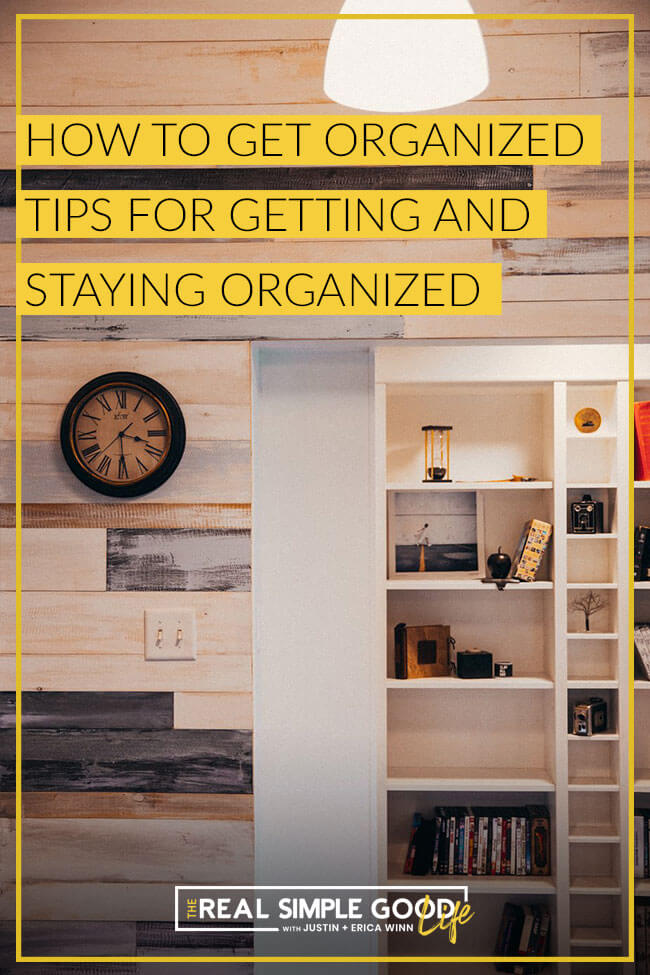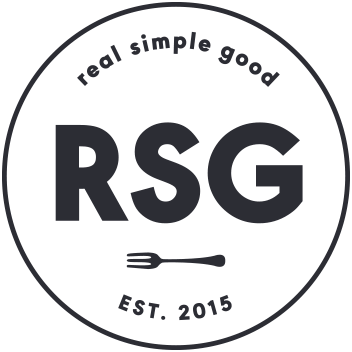How to Get Organized – Tips for Getting and Staying Organized
Getting organized is an understated factor in our overall mental health. Most people don’t realize how the clutter and chaos of their surroundings weighs them down physically and mentally. Learning how to get organized is an easy way you can greatly improve your life.
You can learn to be organized
Even if you are a very disorganized person, you can learn to be organized. People who are organized aren’t just born that way, they have to cultivate a practice and build a habit of organization. Taking small steps each day can help you become more organized and experience the freeing feeling of tidiness and organization.
Here are 5 tips to show you how to get organized:
1. Let it go
To tidy up and get organized, you have to get rid of some things. You don’t have to go all Marie Kondo and get rid of everything that doesn’t bring you joy, but you need to do some purging. That means you’ll have to let go of some things that are creating clutter but you are not using.
Typically, these are items you have assigned value to but they are actually dragging you down because they are cluttering up your life. Look around your house and workspace and ask yourself these questions:
- When was the last time I used this?
- Why am I holding on to this?
- Does it fit in my home/office?
- Can it be donated or sold?
- Is this going to be used in the next year?
Going through the cluttered areas in your house and asking these questions will help you understand what you are holding onto and why. Give yourself permission to let it go. Donate it, sell it, give it to a friend. Do whatever you need to let go and move on.
2. Give everything a home
When spaces feel cluttered and disorganized, it’s because things are set down and stored without any thought. The jacket draped over the couch, the stack of mail on the counter, the new purchase waiting to be “put away”. This randomness leads to chaos – both physically and mentally. To get organized, you need to define a place in your home where everything goes.
Finding a proper home for all of your things can be a challenge. Here are some tips:
- Take it all out and put it back in – This is helpful for drawers, closets, the pantry, etc. Taking items out will help you purge (see step 1) and re-organize them.
- Group like items together – Christmas decorations go in a bin in the garage, dog toys go in a basket, cleaning supplies all go in one cabinet, etc.
- Make daily use items easy to access – Don’t store your car keys in the bottom kitchen drawer. Keep items out and available but put them back in the same place.
- Use organization tools – Bins, shelves, shoe racks, cube storage, etc. These help to define and organize your space, keeping it tidy.
Final tip – if you can’t find a home for something, go back to #1 above and revisit letting it go.
3. Prioritize maintenance
Once everything has a home, maintaining order is critical. It’s easy to fall into old habits and let clutter build back up. But you went through all of the work to find a home for everything, don’t lose momentum now!
The biggest key for maintaining an orderly house or office space is to put things away every single day. A small amount of effort spent putting things in their spot each day will save you more effort down the road. Plus, your mind will be free of clutter and your space will look visually clear and clean.
4. Organize your mental space
The previous steps all focused on organizing your physical space, which indirectly benefits your mental health. However, spending some time and effort to organize your mental space can be a total game changer.
Take some time to think about how you organize your thoughts and manage your daily activities. Everyone is different, but coming up with an organization system for your ideas, priorities and overall schedule can clear mental space and make you much more effective and productive. Here are some examples:
- Maintaining a clear to-do list on a notepad by your computer.
- Scheduling all appointments on your calendar.
- Using a board to track activities and appointments.
- Developing a system for meal prep and planning.
- Using an app like Evernote to organize your notes.
The key here is to get all of those thoughts running around in your head out of your head. It doesn’t matter what system you use. Just get things on paper, on a calendar or in an app somewhere. Clear your mind to focus on the present, knowing you can access those thoughts when you need them.
5. Avoid “re-clutter”
Getting organized requires effort, but staying organized requires discipline. You will be tempted by the “good deals” at Costco and the Black Friday sales. It’s easy to make an impulse purchase that you don’t need or have space for. Before you make a new purchase, start asking yourself this question:
Why do I need this and where will it go?
If you have a genuine need and space where an item can be stored, it’s probably ok to purchase it. However, if it’s just something you “want” and don’t know where it will go, you better think twice before you pull your credit card out.
Bonus tips – Stay organized with small daily actions
Here are a few extra tips to help you stay organized:
- Make your bed every morning
- Do only one thing at a time
- Create a simple morning routine
- Put your keys and wallet in the same place each day
- Always do the dishes – keep the sink clear
- Keep your calendar up to date
- Lay out clothes for the next day the night before
- Organize your desk at the end of each work day
- Carry a small notepad to write down thoughts
- Never leave trash in your car
How will you get organized?
What areas of your life do you need to declutter and organize the most? Let us know in the comments below, we want to hear about it! You can even tag us in your progress posts on Instagram @realsimplegood and #TheRSGLife, so we can help cheer you on. Make sure to give us a follow if you don’t already – let’s stay connected!
Like this Post?
SHARE IT NOW OR PIN IT FOR LATER!






Great tips! Very useful.